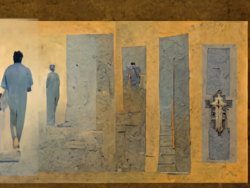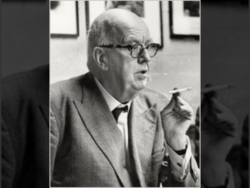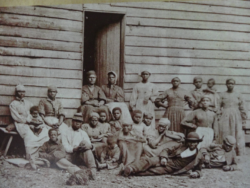
Editor’s Note: This essay is an excerpt from the author’s doctoral project titled “Reaching Generation Z with the Gospel at a Christian University through Faith Integration, Radical Hospitality, and Missional Opportunities,” completed as part of the Doctor of Ministry program at Knox Theological Seminary. The content has been edited to adhere to MTC’s guidelines. For […]
Read More
“To justify a general conclusion, requires many observations, even where the subject may be submitted to the Anatomical knife, to Optical glasses, to analysis by fire, or by solvents.” —Thomas Jefferson, Notes on the State of Virginia, Query XIV I’ll never forget a beautiful Peruvian girl, breathtaking she was, and a true friend, Ivy Arbulu. […]
Read More
For a novel that is smart and fun, Bright College Years, is also depressing. It reminds us of a lost world, of what the campus experience once was but is no longer. . It’s also timely: if recent events (optimistically) portend that we are seeing the beginning of the end of the self-mockery age of […]
Read More
A New Science Culture In 1959, British novelist and one-time scientist C. P. Snow delivered a lecture at Cambridge called “The Two Cultures and the Scientific Revolution.” He accused humanists of being scientifically ignorant and not knowing about the second law of thermodynamics—not to mention the non-conservation of parity. Science and literature—the humanities—were two separate […]
Read More
Just two months after the Massachusetts Teachers Association (MTA) voted in favor of a ceasefire resolution labeling Israel’s defensive war against Hamas as “a genocidal war on the Palestinian people,” the union has once again engaged in the demonization and delegitimization of Israel. On March 21st, the MTA hosted a two-hour webinar titled “Context and […]
Read More
Author’s Note: The following is based on a more comprehensive paper titled “Slavery Revisited: Time on the Cross at 50,” published in the Spring 2024 edition of the Independent Review. Most serious works of scholars are respectfully evaluated by modest numbers of colleagues and occasionally play a small role in determining the prevailing interpretation of […]
Read More
Public institutions typically charge out-of-state students much higher tuition than in-state students. Bryan Caplan and Alex Tabarrok, two leading libertarian economists, have been discussing the puzzle of why that is the case. They correctly rule out the monopoly or cartel explanation. If public colleges were a monopoly or cartel, they could charge higher prices to […]
Read More